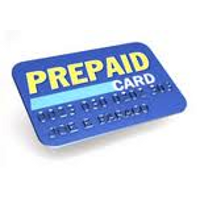Homeland Security to begin Scanning Prepaid Payment Cards of Arriving Travelers

Security inspections at airports and other ports of entry will soon become even more intrusive once the federal government knows how much money a traveler possesses.
Under current law, travelers arriving in the United States must declare if they are carrying more than $10,000 in cash, traveler’s checks or other negotiable currency. However, according to a proposed amendment to the Bank Secrecy Act, the Financial Crimes Enforcement Network (FinCEN) has authorized the Department of Homeland Security (DHS) to also scan prepaid cards in possession of anyone trying to enter the United States.
DHS is currently developing handheld card readers that will allow U.S. Immigration and Customs Enforcement and U.S. Customs and Border Protection to determine whether someone is carrying a credit card, debit card or prepaid card.
Those possessing a prepaid card will be required under U.S. law to declare the balance on these cards.
Cynthia Merritt, assistant director of the Retail Payments Risk Forum at the Federal Reserve Bank of Atlanta, wrote that there still may be some difficulties to work out for the government.
“While issuing such a rule sounds reasonable in theory, enforcement is likely to be another matter. Unlike checking the content of physical items, digital value stored in or accessed by a plastic card or a mobile phone is difficult to measure. How can you tell how much money is loaded on the prepaid card to validate the declared value? In fact, how will enforcement officials even distinguish prepaid cards from credit and debit?”
-Noel Brinkerhoff
To Learn More:
Department of Homeland Security To Scan Payment Cards at Borders and Airports (by Jon Matonis, Forbes)
Crossing the Border: More Reason to Check Your Pockets (by Cynthia Merritt, Federal Reserve Bank of Atlanta)
- Top Stories
- Unusual News
- Where is the Money Going?
- Controversies
- U.S. and the World
- Appointments and Resignations
- Latest News
- Trump to Stop Deportations If…
- Trump Denounces World Series
- What If China Invaded the United States?
- Donald Trump Has a Mental Health Problem and It Has a Name
- Trump Goes on Renaming Frenzy






Comments